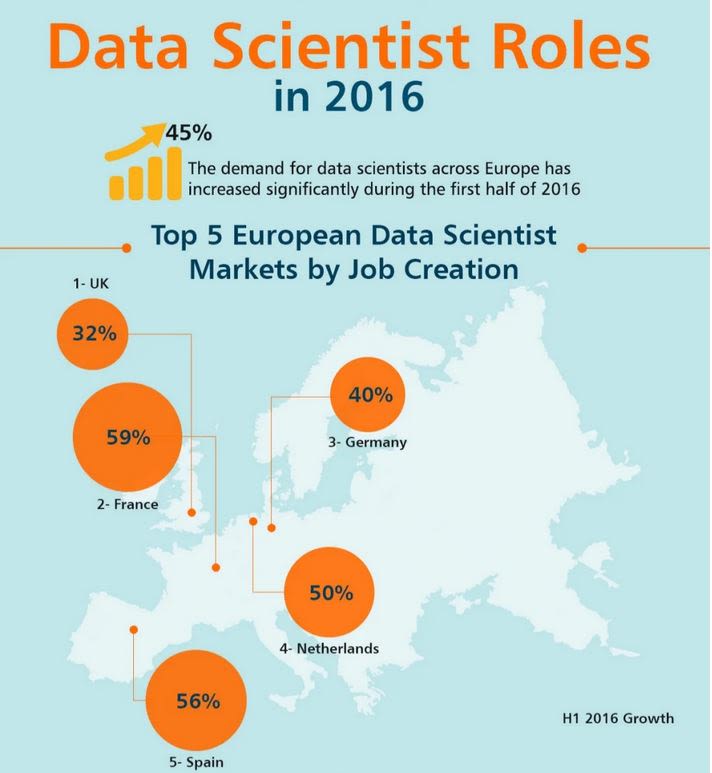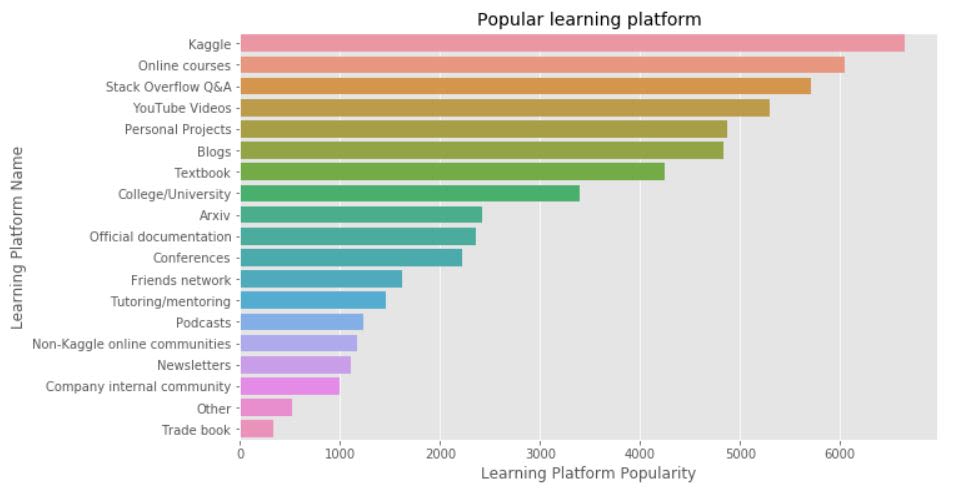![[Future of Work Ep. 7] The Future of Real Estate Investing with Raj Tekchandani](https://res.cloudinary.com/edlitera/image/upload/ar_16:9,c_fill,f_auto,q_auto,w_100/2d8r7bvsbic7b15zmva378p5dcg3?_a=BACADKBn)
Table of Contents
If you have ever wondered or still wonder what the highest paid job in Silicon Valley, which consistently ranks among the top 3 on Glassdoor's best jobs in America list, you can stop now. Referred to as the sexiest job of the 21st century, Data Science is a six-figure salary career.
Whether you wish to look at the salary and packages currently being offered for this job, or the rise in demand for professionals, the numbers still look pretty impressive. According to Glassdoor, data scientists make on average $128,549, while some areas like metro cities and Silicon Valley report salaries of more than $200,000.
Even in Europe, there is an increase in the demand for data scientists, and that demand is expected to rise even further. In 2016, data scientist roles in the UK rose by 32%. A study by Procorre showed that Europe witnessed a 45% increase in demand for data scientists while IBM has forecasted a 28% increase in demand by 2020.

This post aims to outline the causes of such a meteoric rise in the demand for data scientists since 2011, when it started making headlines.
What is the Demand for Data Scientists?
To an economist, this is a simple case of supply and demand, but this is arguably one of the prime reasons why data science pays so well. Companies today are in search of qualified candidates who can help them better understand big data, but these qualified candidates are scarce.
The Data Scientist Report recently released by Crowdflower, a platform for data scientists, seeks to offer readers a better understanding of the data science market and talent. The company, in its 2016 report, mentioned that 83% of its respondents felt that data scientists are scarce and in short supply – a rise from 2015’s 75%.
Article continues below
Want to learn more? Check out some of our courses:
Are Advanced STEM Skills Needed?
The demanding nature of this role is yet another reason why there aren’t many data scientists today. To be a data scientist, you would need to be excellent at math, programming, and statistics. I don't need to tell you how difficult this is.
First, there aren’t many universities that offer data science courses. Even though having a degree in math, statistics, or computer science helps, there is still a lot to be done to make data science more accessible.
Kaggle - a data scientist community, acquired in early 2017 by Google Cloud - revealed in its 2017 report, State of Data Science and Machine Learning Survey, that a vast majority of full-time practitioners learned data science through unconventional routes. Thirty-two percent of them learned through MOOCs, while 27% picked up the skill on their own – both of which demand a lot of internal motivation, a very uncommon trait.

Does it Pay to be Big Data Savvy?
In the last two years alone, about 90% of the world’s total information was created. Because the majority of all data in enterprises is unstructured, data analytics software, and business intelligence tools are incapable of reading and analyzing it accurately.
The general answer to the question, "what do data scientists do?" is that they deal with data. While that is true, the real question is "how do they deal with it and in what capacity?"
Data scientists help business leaders make more informed decisions by understanding the world better. By making sense of big data, which is usually a cosmic mess, data scientists can transform a company’s data into its competitive advantage.
How Does Data Influence Decision Making in Business?
Business leaders have come to accept that, while gut instincts are a good starting point, data also plays a major role when making sound business decisions.
Today, data scientists need to mine and present findings from internal and external data sources to their stakeholders, C-level executives and other decision makers. Conclusions need to be presented in an easy-to-understand format and, ideally, bring about immediate positive change in the business. Clear presentation and storytelling skills are, therefore, very important to the role too.
How to Learn the Data Science Industry
In addition to being well-versed in statistics, math, and programming, data scientists also need to possess excellent domain knowledge to accurately interpret data and make accurate deductions. Banking, insurance, retail, and many other industries all require that data scientists possess respective domain knowledge, as it is extremely important for accurate data analysis.
Many organizations, however, tend to treat data scientists as spot problem solvers who are many times recruited from completely different industries and often unaware at first of the finer nuances in the data they are given access to.
According to Svetlana Sicular, a Gartner analyst, companies should search more for data scientists internally, as most organizations already have people who are well-versed with their own data better than any other outsider data scientists. She also recommends training these chosen individuals in programming as well as in other complex aspects of data science, as this solution would help bridge the current divide between data science and domain knowledge.
One can now see how valuable a data scientist with a perfect blend of domain knowledge and data analysis skills is to any company.
Clearly, the salary earned by data scientists is well-deserved, as the job is not an easy one. So, if you desire to be a data scientist, know that it is not impossible! There are multiple Edlitera Training Programs that can help you learn how to code. While a good amount of learning is needed to develop and hone all the skills above, with a little bit of grit and persistence, you are well on your way!



